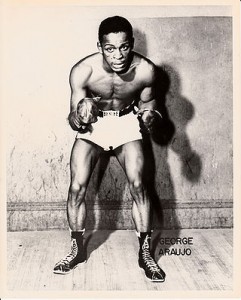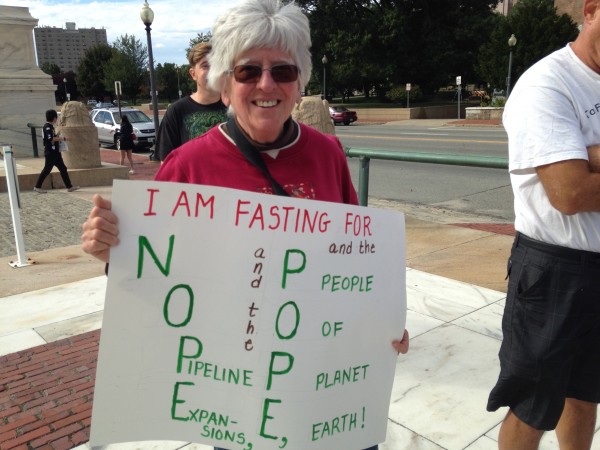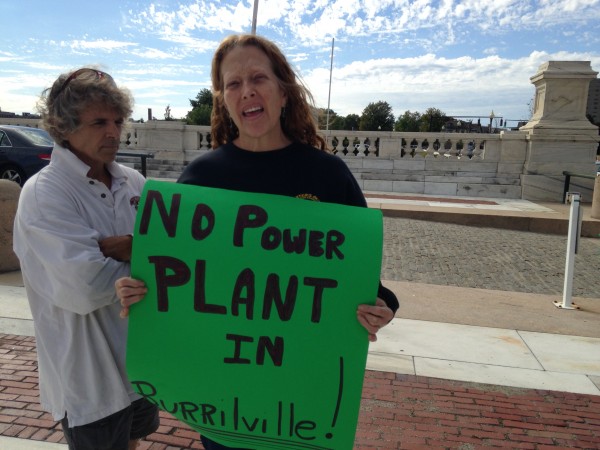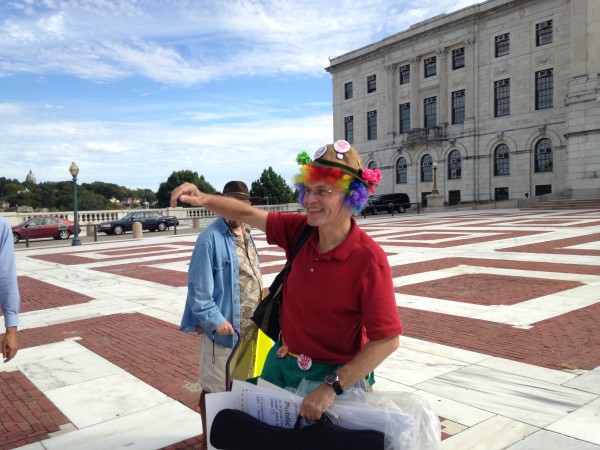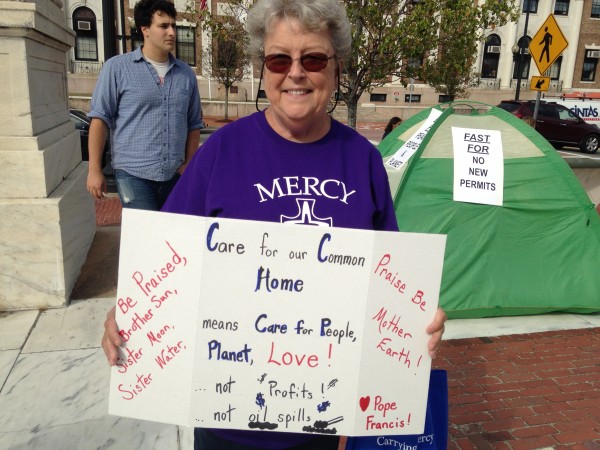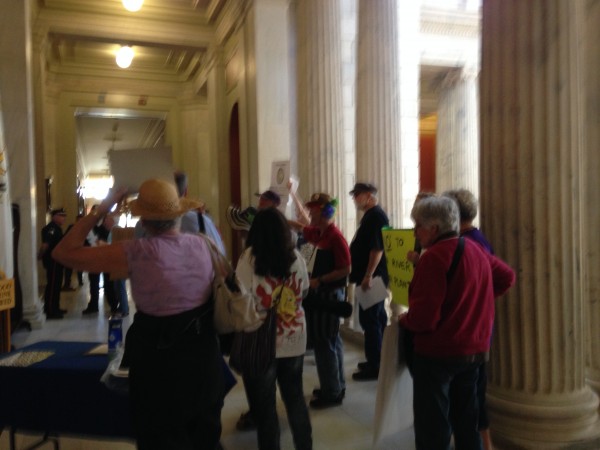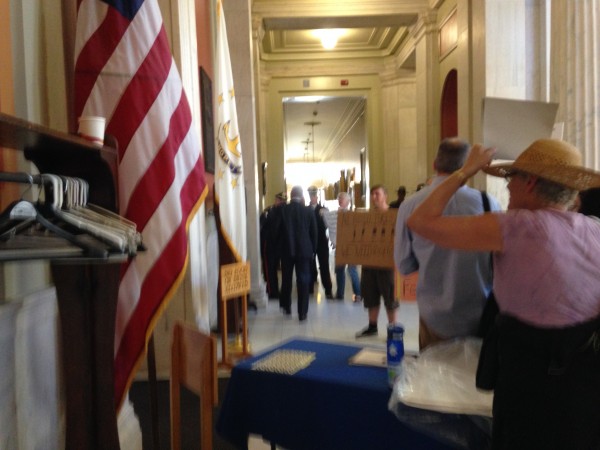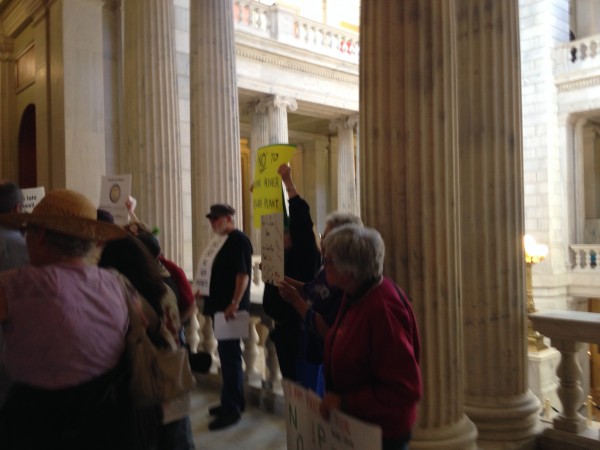“It is really a complete pleasure to support your film project because it is living history really,” says Dr. Richard Lobban, Emeritus Professor of Anthropology at Rhode Island College, who was a reporter at the time and wrote stories from the field. From 1961 until 1974, Amilcar Cabral and his African Party for the Independence of Guinea and Cape Verde/Partido Africano da Independência da Guiné e Cabo Verde (PAIGC) engaged in an intense war against the Portuguese who had colonized Africa. Though Cabral himself was not a Communist, the conflict became one of the hot fronts of the Cold War.
 “Cape Verdeans have always seen themselves, because they are an immigrant Afro-American population, as not having an attachment to the African American experience, or at least the same attachment to the African American experience,” Araujo told me several months ago. “The Cape Verdeans in Providence do one job in Providence. They were all longshoremen. The ILA [International Longshoremen’s Association] 1328 is an entirely Cape Verdean union. It was founded by Cape Verdeans. It’s officers are still Cape Verdean-majority. It’s also a very protective union. They were also able to keep the docks honest, which is the problem that they had in Boston and in New York. And they were able to keep it open to Cape Verdeans, most importantly!”
“Cape Verdeans have always seen themselves, because they are an immigrant Afro-American population, as not having an attachment to the African American experience, or at least the same attachment to the African American experience,” Araujo told me several months ago. “The Cape Verdeans in Providence do one job in Providence. They were all longshoremen. The ILA [International Longshoremen’s Association] 1328 is an entirely Cape Verdean union. It was founded by Cape Verdeans. It’s officers are still Cape Verdean-majority. It’s also a very protective union. They were also able to keep the docks honest, which is the problem that they had in Boston and in New York. And they were able to keep it open to Cape Verdeans, most importantly!”
“Cape Verdeans were relatively politically sophisticated to a degree more than Azoreans. And also because of the amount of shipping that passed through there they were also more cosmopolitan,” he said. “They identify as an international people.”
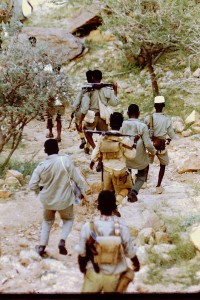
This is a point that is vital to understand because the tensions on the macro level that played out in Cape Verde were staged on the micro level in Rhode Island. For example, the contradictions of race and racism impacted Cape Verdean identity in unique ways. Segregation in schools and churches would confound a population that in some senses does not regard itself as an African population as much as from an island near Africa that has its own unique traditions and culture. The expansion of Brown University and gentrification effectively dispersed a historic neighborhood by the end of the 1960’s.
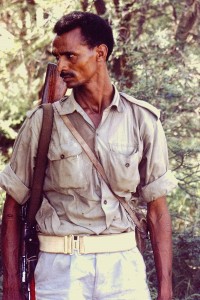
These were the challenges that Cabral and his contemporaries were encountering when they began an armed insurrection against the same types of systemic racism and exploitation perpetrated by the Portuguese. And this is where the PAIGC’s links with the Communist bloc states proved to be so natural, it was because the ethos of internationalism, which defined Communist solidarity in the anti-colonial struggle, were part of Cape Verdean identity.
“Amilcar Cabral was from Angola, so there was this recognition, the same way that Che [Guevara] was from [Argentina], not Cuba, that there’s an internationalism,” said Araujo.
Guenny Pires, who is directing the documentary, says “I grew up with his story but I never really knew what happened and why. I was little when we got independence in 1975 so I could not understand a lot of stuff… I thought as a filmmaker it would be my responsibility to tell this story.”
Pires says the film was created “to honor Cabral and to keep his message alive.”
Click the Player Below to Listen to the Complete Interview!
Having been produced over the past 15 years, he is now seeking funding for the completion of the picture. And, because his production is partnered with a non-profit, all donations are tax-deductible.
For more information or to donate, visit the website of Txan Films or email them at TxanFilm@gmail.com.

]]>
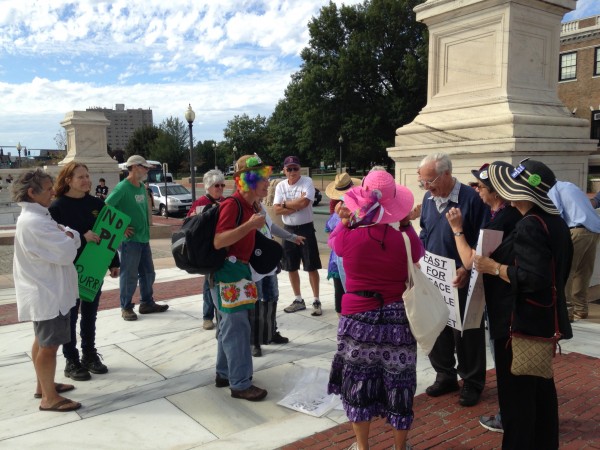 A small group of protestors from a variety of socio-economic backgrounds repeated their opposition to the proposed methane gas power plant in Burrillville. Simultaneous with this event, Governor Raimondo welcomed the Prime Minister of Cape Verde, José Maria Pereira Neves.
A small group of protestors from a variety of socio-economic backgrounds repeated their opposition to the proposed methane gas power plant in Burrillville. Simultaneous with this event, Governor Raimondo welcomed the Prime Minister of Cape Verde, José Maria Pereira Neves.
Among the protesters was Randall Rose of Occupy Providence, Dr. Peter Nightingale of the University of Rhode Island, independent film maker Robert Malin, and Green Party activist Greg Geritt. They were offering their protest in solidarity with fasting environmental activists in Washington DC who are staging their action simultaneous with the arrival of Pope Francis. The Catholic leader has made climate change a major focus is his recent encyclical, LAUDATO SI, and is expected to raise the issue during his visit to America and the United Nations this week. The Pope just recently visited Cuba, a country that converted to a sustainable energy power grid and green infrastructure after the fall of the Soviet Union collapsed their petroleum import markets in the early 1990’s.
During her opening remarks, Governor Raimondo emphasized the cultural and economic ties between Rhode Island and Cape Verde. Cape Verde has begun rolling out a sustainable energy program in the past several years, such as opening a solar panel energy park last month that Prime Minister Neves attended. The nation, made up of a chain of islands, stands to sustain extreme damage should the oceans rise significantly due to climate change’s melting of the polar ice caps. A significant portion of the population lives beside the ocean in housing whose foundations would be threatened by erosion. Some of the islands would be completely submerged. Beginning in 2011, the island began an expected nine year program to convert the power grid to renewable resources.
Protestors outside the room hosting the Prime Minister of Cape Verde.
]]>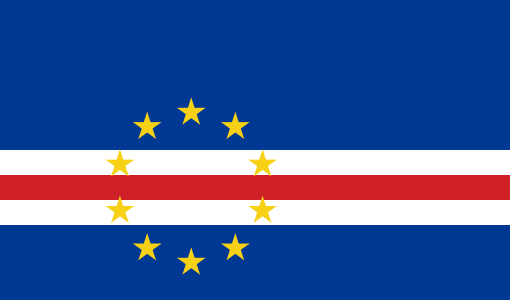 While the celebrations have passed for American Independence Day, in Cape Verde and its diaspora, which has a significant representation in Rhode Island, the party has just begun. July 5th and 6th mark the fortieth anniversary of the independence of Cape Verde from Portuguese colonialism and the foundation of the Republic. This anniversary is particularly impressive because it occurs in close temporal proximity to the end of the American presence in Vietnam, symbolic of what was a series of major victories for the anti-colonialist struggle in the developing world and a high point in the foreign policy of the Soviet Union, Cuba, and the People’s Republic of China.
While the celebrations have passed for American Independence Day, in Cape Verde and its diaspora, which has a significant representation in Rhode Island, the party has just begun. July 5th and 6th mark the fortieth anniversary of the independence of Cape Verde from Portuguese colonialism and the foundation of the Republic. This anniversary is particularly impressive because it occurs in close temporal proximity to the end of the American presence in Vietnam, symbolic of what was a series of major victories for the anti-colonialist struggle in the developing world and a high point in the foreign policy of the Soviet Union, Cuba, and the People’s Republic of China.
The islands, called Cabo Verde in Lusophone dialect, were discovered by Portuguese colonist Alvise Cadamosto and established as a permanent holding of the Empire in 1462. As an archipelago off the western coast of continental Africa, it was a major hub in the transport of human beings captured in the trans-Atlantic slave trade. After the Portuguese abolished slavery in 1869, Cape Verde continued to be held as a colony by the Empire and an exodus of immigrants began, creating a diaspora with population centers in New England.
Beginning in 1956 with the foundation of the PAIGC (Partido Africano da Independência da Guiné e Cabo Verde/African Party for the Independence of Guinea and Cape Verde) by Amílcar Cabral, his brother Luís, Aristides Pereira, Fernando Fortes, Júlio Almeida and Elisée Turpin, the colonized peoples engaged in a multi-decade anti-colonialist struggle that included the fight for Cape Verde and Guinea Bissau but also embraced a continent-wide struggle for freedom, such support for the anti-apartheid movement in South Africa. After Amílcar Cabral visited Cuba in 1966, Fidel Castro volunteered military advisors and doctors, while the USSR and China provided rifles and military training. This chain of events coincided with American efforts in Indochina, so the military support given the Portuguese, led by the Fascist junta of Antonio Salazar, was particularly brutal and featured napalm and other materiel being used in Asia. It was the philosopher Frantz Fanon who wrote in his classic THE WRETCHED OF THE EARTH:
National liberation, national renaissance, the restoration of nationhood to the people, commonwealth: whatever may be the headings used or the new formulas introduced, decolonization is always a violent phenomenon… Decolonization, which sets out to change the order of the world, is, obviously, a program of complete disorder. But it cannot come as a result of magical practices, nor of a natural shock, nor of a friendly understanding. Decolonization, as we know, is a historical process: that is to say that it cannot be understood, it cannot become intelligible nor clear to itself except in the exact measure that we can discern the movements which give it historical form and content. Decolonization is the meeting of two forces, opposed to each other by their very nature, which in fact owe their originality to that sort of substantification which results from and is nourished by the situation in the colonies. Their first encounter was marked by violence and their existence together—that is to say the exploitation of the native by the settler—was carried on by dint of a great array of bayonets and cannons.
Amílcar Cabral was assassinated in 1973 by the Portuguese in an effort that was attempting to ultimately foil the resistance movement. But despite this setback, it proved to be impossible to hold back the forces of change. Following a revolt in Portugal that unseated the Salazar regime, the new government engaged in direct negotiations with the anti-colonial militias, resulting in the foundation of an independent Cabo Verde in July 1975, just several months after the fall of Saigon and America’s evacuation from Vietnam.
Every commemoration, however, must contain within it a lesson for today. It is very simplistic to merely re-tell a history and not include some lessons. First, of course, there is a great deal of inspiration to be gleaned from the achievements of Cape Verdeans in our midst. The diaspora has provided us with a slew of notable figures who have made great strides despite the power of racism and structural discrimination in out society. Second, there is the demonstration that the people, united, will never be defeated. Today we face struggles that, in many ways, are much more astounding than the challenge of twentieth century decolonization, be it at home or abroad. But despite these challenges, it seems apparent that they can and ultimately always will fall to the power of the people. It might take time, but it does happen. And finally, consider one of the famous line of Amílcar Cabral: “Tell no lies, claim no easy victories.” It is very easy to do what is acceptable and serves the powerful. It is much more difficult to take the road of genuine scholarship, speaking truth to power, and challenging those who would exchange you riches for your soul. Only with adherence to the truth and solidarity with the facts will true change come in the world.
7/6, 4:35 PM: I could not resist adding this stellar hip-hop single by Agent of Change, truly great music.
]]>